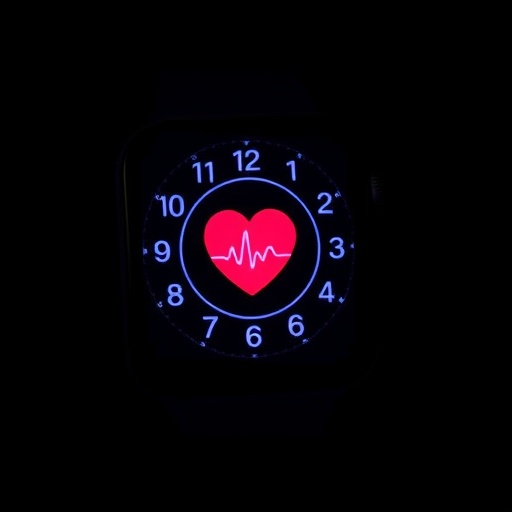In a significant advancement for cardiovascular care, the American College of Cardiology (ACC) has released comprehensive guidance aimed at optimizing the use of health data collected through Apple Watch devices. This guidance seeks to bridge the gap between wearable technology and clinical practice, offering clinicians a framework to incorporate Apple Watch data effectively into cardiovascular health management. The widespread adoption of smartwatches has revolutionized personal health monitoring, and with heart disease remaining the leading cause of mortality globally, leveraging these devices holds immense potential in improving patient outcomes.
The initiative comes as a response to the increasing number of people utilizing Apple Watch to actively monitor their cardiovascular health. According to Ami Bhatt, MD, FACC, the ACC’s Chief Innovation Officer, the guidance is essential in ensuring that data is not only collected accurately but also used judiciously alongside traditional clinical assessments. The ACC advocates a collaborative health ecosystem where clinicians and patients work synergistically, and this tool serves as a foundational resource to navigate the integration of Apple Watch features within clinical settings.
Cardiovascular disease continues to pose a formidable public health challenge worldwide, accounting for millions of deaths annually. Many instances of heart disease are preventable with early intervention and continuous management, which creates a pivotal role for continuous, real-time health monitoring tools. Wearable technology, such as the Apple Watch, offers a unique capacity to provide longitudinal health data, allowing both patients and healthcare providers to detect subtle changes in cardiac function and respond proactively.
Apple Watch incorporates several heart health features that have undergone rigorous regulatory evaluation. Notably, the device includes an electrocardiogram (ECG) sensor capable of recording electrical heart signals, thereby enabling detection of arrhythmias. The technology acquires electrocardiographic data using an electrical sensor embedded in the watch’s back crystal and the digital crown, facilitating single-lead ECG recordings comparable to clinical grade devices within specific parameters. The irregular rhythm notification (IRN) algorithm further analyzes pulse data to identify patterns indicative of atrial fibrillation (AFib), one of the most common and clinically significant cardiac arrhythmias linked to increased stroke risk.
Beyond detection, the Apple Watch also provides an AFib History feature designed for patients already diagnosed with atrial fibrillation. This tool quantifies AFib burden—measured as the percentage of time a person experiences AFib—by analyzing pulse rate trends and generating weekly summaries. Such data can inform both patients and clinicians on the effectiveness of treatment regimens and help guide adjustments in therapy, potentially reducing complications associated with prolonged uncontrolled arrhythmia.
In addition to these regulated features, the device integrates several wellness applications that indirectly support heart health by encouraging healthy lifestyle behaviors. These include activity tracking that monitors metrics such as steps taken and calories burned, mindfulness sessions that reduce stress-related cardiac risk, sleep monitoring which addresses sleep apnea and other disorders influencing cardiovascular health, and cardiorespiratory fitness estimation through VO2 max calculations. These parameters, while not diagnostic, deliver valuable longitudinal insights facilitating holistic patient care.
The ACC’s newly published tool, “Leveraging Apple Watch for Cardiovascular Care,” outlines best practices for clinicians seeking to incorporate data from Apple Watch into patient care strategies. The tool emphasizes the importance of verifying the accuracy of user-reported data, individualizing thresholds for clinical follow-up, and crafting clear communication pathways to ensure patient understanding and appropriate response to health alerts. Moreover, it stresses that successful implementation requires a carefully designed plan including patient education on proper device usage and ongoing clinical oversight.
Importantly, the guidance delineates clinical scenarios where Apple Watch data are most appropriate, such as in health maintenance, preclinical screening, and monitoring established arrhythmias under ongoing care. However, it cautions against relying on the watch in acute settings requiring immediate notification and intervention. For patients needing continuous ECG vigilance or rapid detection of myocardial infarction, clinically validated devices with real-time alert capabilities remain the gold standard.
Patients must be made aware—as the tool clearly states—that Apple Watch cannot detect heart attacks, underscoring the distinction between wearable wellness tools and diagnostic medical devices. This distinction is crucial to prevent false reassurance and ensure individuals seek emergency care for symptoms suggestive of acute coronary events.
The “Leveraging Apple Watch for Cardiovascular Care” tool was developed in collaboration with Apple and funded in part by the technology company. This partnership reflects a growing trend toward integrating consumer health technologies with professional medical guidance, aiming to harness the benefits of digital health innovations while maintaining clinical rigor and patient safety.
As a globally recognized leader in cardiovascular care, the ACC supports over 60,000 professionals in more than 140 countries and is dedicated to advancing cardiovascular science and improving patient outcomes. The organization’s involvement ensures that the guidance is grounded in evidence-based medicine and represents a timely resource for the evolving landscape of digital cardiology.
For clinicians eager to adopt and adapt their practice to modern technological advances, this guidance provides a roadmap balancing optimism for wearable cardiac health monitoring with prudent clinical judgment. The document can be accessed in full at ACC.org, providing an invaluable resource to optimize patient monitoring, enhance clinician-patient collaboration, and ultimately improve cardiovascular outcomes in an age increasingly shaped by digital innovation.
Subject of Research: Integration of wearable health technology data, specifically Apple Watch, into cardiovascular disease management and clinical practice.
Article Title: American College of Cardiology Releases Clinical Guidance for Leveraging Apple Watch in Cardiovascular Care
News Publication Date: Not specified in the source content.
Web References: https://www.acc.org/leveragingapplewatch
Keywords: Cardiovascular disease, wearable technology, Apple Watch, electrocardiogram, atrial fibrillation, heart health monitoring, digital health, cardiac arrhythmia, ECG, heart disease prevention.
Tags: American College of Cardiology guidelinesApple Watch heart health monitoringcardiovascular disease prevention strategiesclinical assessments and wearable devicescollaborative health ecosystemsheart disease management innovationsimproving patient outcomes with technologyintegrating smartwatch data in clinical practiceoptimizing health data usagepersonal health monitoring advancementssmartwatch adoption for cardiovascular healthwearable technology in healthcare





